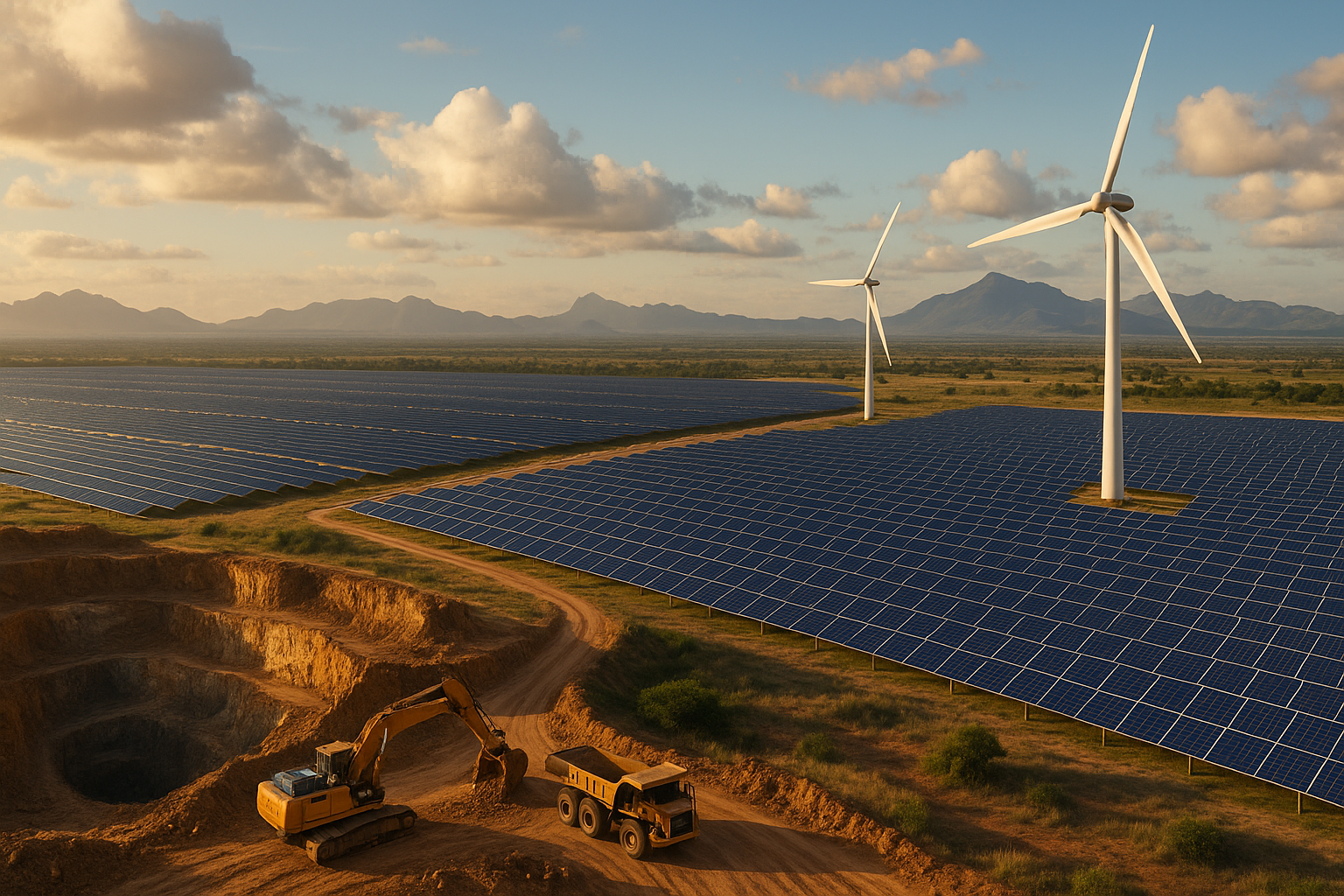Africa’s Green Minerals: Building a Just Pathway to Power the World’s Clean Future
The World Bank’s 2025 report, developed with DT Global and Levin Sources, urges a just and inclusive transition in Africa’s mineral economies—ensuring fairness, gender equality, and transparency as the continent powers the global clean energy shift. It warns that without equitable governance and community participation, the green mineral boom could reinforce old injustices instead of driving sustainable development.

The World Bank's October 2025 report, "Fostering a Just Transition in the Energy Transition Minerals Sector in the Eastern and Southern Africa Region," developed in collaboration with DT Global and Levin Sources, is a sweeping study of how the global clean energy shift is transforming the mineral economies of Burundi, the Democratic Republic of the Congo (DRC), Malawi, South Africa, and Zambia. Conducted under the Extractives Global Programmatic Support (EGPS) and RISE Partnership, and led by Ezgi Canpolat and Martin Lokanc, the report argues that Africa's mineral wealth, cobalt, copper, lithium, nickel, and manganese, could be the backbone of a new era of industrialization. Yet it warns that without fairness and inclusion, the energy transition could entrench old patterns of inequality and exploitation. The report urges a model of growth that is not just green but also just, one that empowers communities, ensures transparency, and distributes benefits equitably.
A Framework for Fairness in the Clean Energy Age
At the heart of the report lies a justice-based framework built around four principles: distributional, procedural, restorative, and recognition justice. These dimensions aim to ensure that the benefits of mining are shared fairly, decisions are transparent, damages are repaired, and the rights of marginalized groups are respected. The authors stress that energy transition minerals (ETMs) should uplift rather than displace the communities that supply them. Without inclusive governance, they caution, the race to decarbonize could deepen social divisions and reproduce the same inequities that plagued Africa's past resource booms. Justice, they insist, must be designed into mining systems, not appended as an afterthought.
Big Mines, Small Miners, and the Battle for Equity
One of the report's most striking findings is the persistent imbalance between large-scale mining (LSM) and artisanal and small-scale mining (ASM). Large industrial operations, backed by global capital, often dominate the best concessions and enjoy strong regulatory support. Meanwhile, millions of artisanal miners, especially in the DRC and Malawi, struggle in precarious conditions, confined to low-yield zones and deprived of formal rights. Yet ASM provides livelihoods to thousands and could play a major role in equitable growth if supported. The report calls for formalizing ASM through realistic regulations, technical training, and access to finance, making it part of the legitimate mineral economy. It argues that empowering small-scale miners would not only create jobs but also promote local ownership of Africa's clean energy future.
The Human Toll and the Voice of Civil Society
Behind the statistics are human stories that expose the cost of weak regulation. In Zambia's Serenje District, the Centre for Environment Justice (CEJ) uncovered a devastating manganese poisoning crisis at the Southern Africa Ferro Alloys Limited plant. Workers suffered from manganism, a neurological disorder resembling Parkinson's disease, after years of exposure to toxic dust. CEJ's campaign for compensation and accountability forced authorities to act, marking a rare win for worker justice. Similar grievances surfaced in the DRC's Lualaba Province, where mining booms have displaced artisanal workers and inflated living costs, leaving locals poorer in the shadow of industrial wealth. The report portrays these episodes as emblematic of a broader struggle, where communities bear environmental and social burdens while corporate profits soar.
Gender, Governance, and the Regional Puzzle
Governance reform, gender inclusion, and regional cooperation emerge as central pillars of a just transition. The report highlights endemic corruption, opaque contracts, and weak oversight that erode public trust. To rebuild it, the World Bank urges transparent licensing, revenue disclosure, and beneficial ownership reporting, aligned with the Extractive Industries Transparency Initiative (EITI). It also emphasizes digital open-data systems to enable citizens and journalists to track mineral revenues and monitor compliance. On gender, the authors reveal how women are often excluded from formal mining roles and left to occupy unsafe, informal jobs. They call for measurable gender inclusion across leadership, procurement, and training programs. Regionally, projects like the Lobito Atlantic Railway and frameworks under COMESA are cited as game changers for integrating markets, harmonizing standards, and combating cross-border challenges such as mineral smuggling and trafficking.
Designing a Fairer Green Future
The report concludes with a roadmap for transforming Africa's mineral wealth into shared prosperity. It calls for multi-stakeholder partnerships that unite governments, corporations, and communities to co-design sustainable mining practices and community development plans. It urges governments to invest in skills training, local procurement, and workforce diversification, ensuring that green jobs benefit Africans first. Law enforcement must be strengthened to protect environmental and labor standards, while civil society should be empowered to hold both governments and companies accountable.
In its closing note, the World Bank delivers both a warning and a vision: Africa's minerals may power the world's clean energy transition, but justice must power Africa's. A just transition, the report insists, will not emerge naturally, it must be deliberately built and courageously defended. If governments, industries, and citizens act together, Africa's mineral riches could fuel not only global decarbonization but also a fairer, more dignified future for the people who live atop them.
- FIRST PUBLISHED IN:
- Devdiscourse
ALSO READ
-
ADB, World Bank, and SDC Partner to Boost Climate Resilience in Nepal
-
World Bank Releases New Publication on Global Trends in Public Investment Management
-
World Bank Grants $18.3 Million to Boost Sierra Leone’s Climate and Biodiversity Resilience
-
World Bank Expands $290 Million Health Security Program to Central Africa
-
Tourism Can’t Save Maldives from Debt Trap Without Fiscal Reform, Says World Bank









